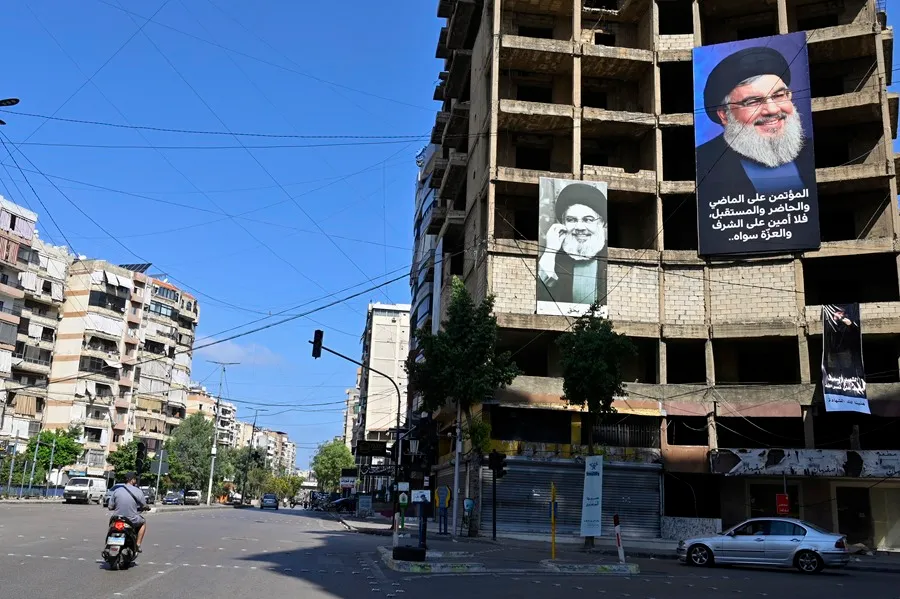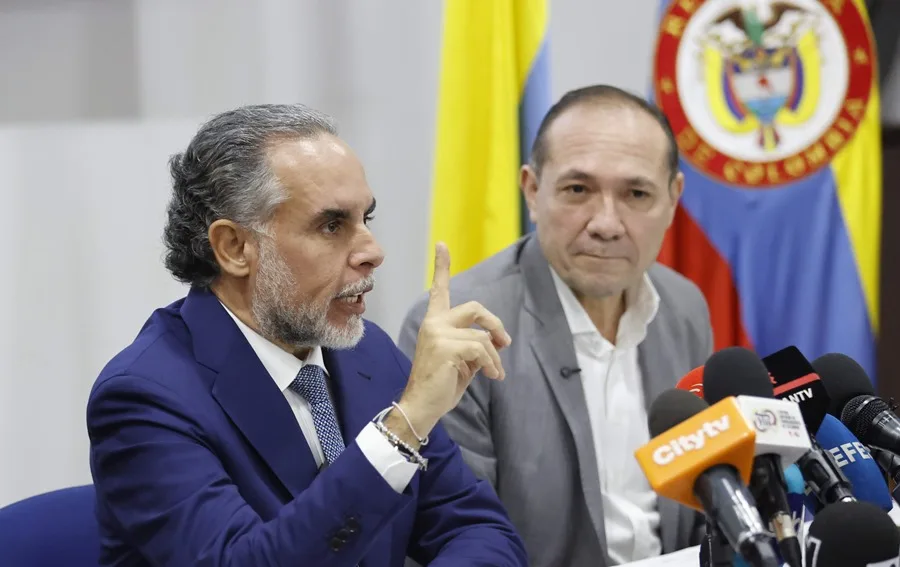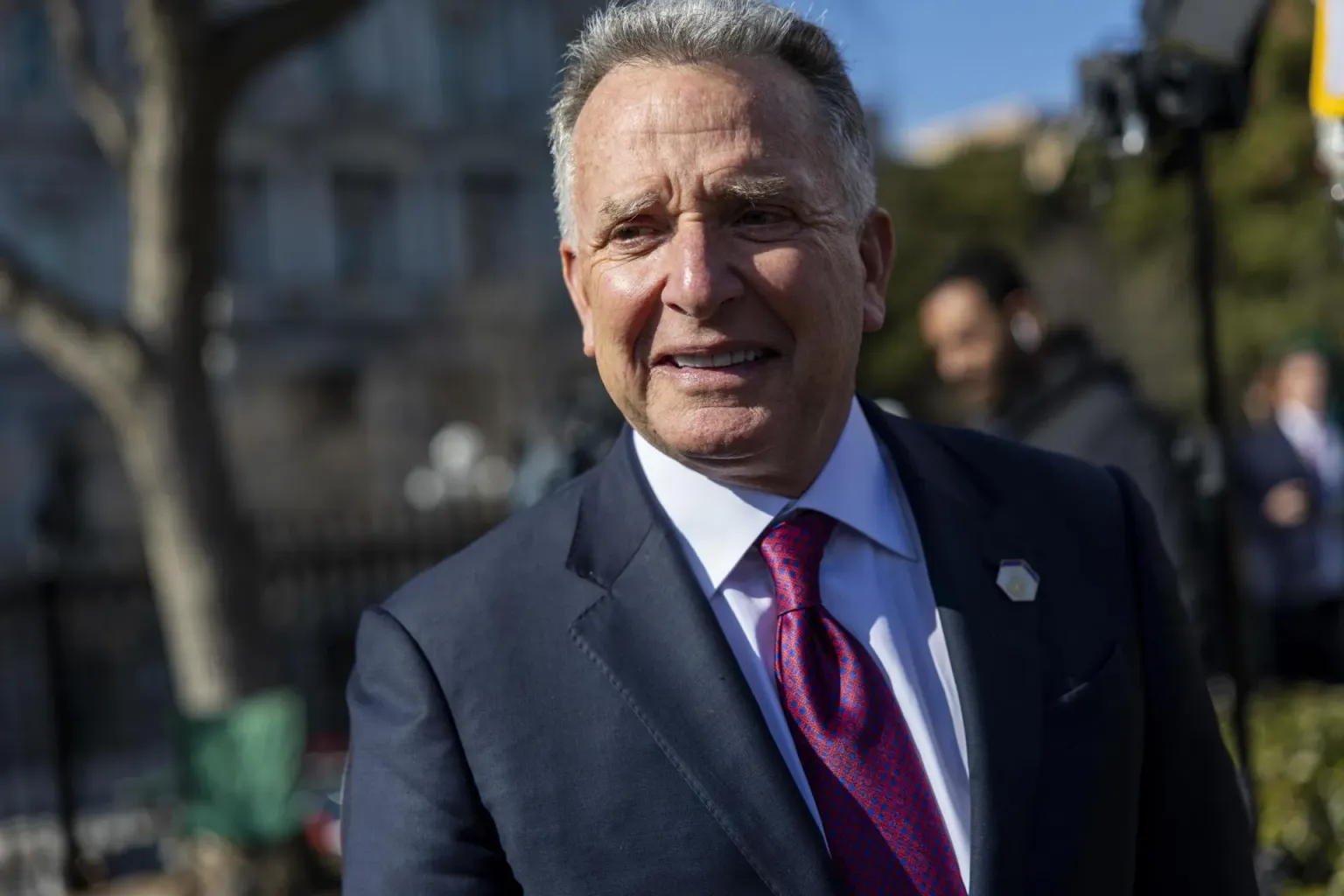International
Israel continues to shank the ranks of Hizbula as it counterattacks the Houthis in Yemen

Israel continued to bomb southern Lebanon and the southern suburbs of Beirut on Sunday, in addition to expanding the range of combat with a new bombing against the Yemeni port city of Al Hodeida, causing the death of at least four people and injuries to 40 others, according to a preliminary assessment.
“The Army carried out a precise attack in the Dahye area of Beirut,” a military statement said on Sunday. In this same area, and in the same way, yesterday Saturday, Israel killed Nabil Qaouk, commander of the Hezbulah Preventive Security Unit and in the last week, most of its military top.
As announced today by the Army, in addition to the top leader of Hizbulah, Hassan Nasrala, and its commander of the southern front, Ali Karaki, more than twenty members “of various ranks” died with them in Friday’s massive bombing in the suburbs of Beirut.
“These deaths do not mean the end of Hezbollah because it is deeply rooted in Lebanese society, but it does allow us to push them to the north of Lebanon and thus be able to create the conditions for the evacuated residents to return to their homes,” the military spokesman, Roni Kaplan, explained to EFE today.
Similarly, Miri Eisin, who served more than 20 years in Israeli military intelligence and heads Israel’s International Counterterrorism Institute, said today that despite being “very effective” attacks, they cannot yet be described as a “mate checkmate” against the Lebanese Shiite group.
“Israel still has immediate additional military threats to continue to deal with, despite the death of Nasralá, such as the arsenal and weapons of Hezbulah as well as all the tunnels” near the border, he added.
That is why, according to the Minister of Defense, Yoav Gallant, pointed out yesterday, the military corps is studying an “expansion of the activities” of the armed forces on the northern front, which could take the form of a land invasion, according to the Hebrew press, although of a very limited nature.
Karaki had already survived another air attack against the Dahye a few days earlier, when Hizbulah came out to deny information about his death that emerged from Israel and to affirm that his high command had “moved to a safe place” after the failed bombing.
At least part of the missiles fired that day fell in the area without exploding, according to Lebanese media.
Security sources cited by the Israeli press already described him then as the head of the group’s military activity in southern Lebanon and assured that he was also a member of the Jihad Council, the movement’s body in charge of security plans.
In the last ten days, Israel has launched several bombings against alleged targets of Hizbula in the southern suburbs of Beirut, the most serious the one that last Friday ended the lives of Karaki, Nasrala and other high-ranking officials not yet announced by the formation.
Israel attacks South Beirut again
Israel launched an air strike again this Sunday against the southern suburbs of Beirut, just 24 hours after confirming the death of the leader of the Shiite group Hezbollah, Hassan Nasrala, in a bombing on Friday against the Lebanese capital.
“The Army carried out a precise attack in the Dahye area of Beirut. More details will follow,” Israeli forces said in a brief statement.
This morning, the country announced the death of another senior official of the Shiite group, Nabil Qaouk, who was hit last night in an attack on the Dahye, a bastion of Hizbula and subjected to almost daily Israeli bombing since the beginning of the week.
International
The Government of Colombia presents twelve questions that it will propose in a popular consultation to promote its reforms

The Government of Colombia announced this Tuesday the twelve questions that will be included in the popular consultation that President Gustavo Petro will file on May 1 before the Senate to achieve the approval of the stagnant reforms in Congress.
The twelve questions are focused on the labor reform proposed by the Government and which was archived after its third debate in the Seventh Senate Commission last month.
“If we were not sure that these questions would get the yes, we would not be proposing them, it was that simple,” said the Minister of Labor, Antonio Sanguino, at a press conference with the Minister of the Interior, Armando Benedetti.
For his part, Benedetti said: “If the consultation is won, Congress has two periods before then to pass the law based on what was approved in the consultation or if not the president takes it out by decree.”
The consultation is binding if it obtains the necessary majorities and is declared valid in terms of participation.
In Colombia there are 40,963,370 people qualified to vote, so at least 13,654,456 citizens must pay for the popular consultation to be valid and for half plus one of the votes to be expressed in favor of each question of the Government.
Therefore, the consultation is “mandatory, first for Congress and then for the President of the Republic,” Benedetti added.
These questions “constitute the soul and backbone of the labor reform that will be proposed in the popular consultation that we hope will be endorsed or facilitated with the approval of the Senate of the Republic in its plenary,” explained Minister Sanguino at the press conference.
The consultation will consist of closed-answer questions: Colombians must vote ‘Yes’ or ‘No’ before each initiative and to move forward, “each question has to pass the threshold” required, Benedetti added.
The questions are aimed at improving the labor rights of all Colombians with proposals such as the regulation of the working day with a maximum of eight hours a day or the guarantee of medical permits, including licenses for disabling menstrual pain.
In addition, they have a section focused on the business world with proposals such as the elimination of outsourcing and abusive intermediation in employment contracts, minimum hiring quotas for people with disabilities or the guarantee of fair wages for rural workers.
The complete content of the questionnaire, according to the ministers, was built from more than 20,000 proposals sent by citizens through the portal enabled until last Monday, April 21.
The popular consultation must be officially filed by President Gustavo Petro, on May 1, as, as he said, a tribute to the working class of Colombia within the framework of International Labor Day.
International
Within Francis’ private wake: respect and prayer for the deceased pope

Two Swiss guards watch over Pope Francis’ coffin day and night in the chapel of his private residence. Next to him, a lit candle and at his feet, few flowers and some people who pray for him, only clerics, nuns or Vatican employees, all immersed in a climate of deep respect.
The wake has been arranged in what in his little more than twelve years of reign was his residence, since he did not want to inhabit the Apostolic Palace: the Casa Santa Marta, a simple and more lively building within the Vatican State, next to the apse of the basilica.
The coffin is made of simple wood, and has been installed in his private chapel, located on the ground floor, just as he himself wanted by simplifying what would be his funeral.
The body of the pontiff, who died yesterday Monday at the age of 88 due to a stroke and after months with serious respiratory problems, will be transferred this Wednesday to St. Peter’s Basilica for exhibition before the faithful.
But in the meantime, its burning chapel runs privately, reserved only for members of the Curia, religious or employees of the Holy See who must show their accreditation before crossing the walls of the hermetic Papal State, in the center of Rome.
Once inside, those who want to say goodbye to the pontiff must wait under this torrid April sun for a gendarme to allow them to access Santa Marta, protected by a strict security protocol.
Then they parade through the corridors of their ground floor, between saints, virgins and some plants, until they reach the chapel, which is entered in small groups.
Inside, several agents of the Vatican police and the Swiss Guard dressed as civilians conscientiously control that no one leaves the line: the sign is of maximum respect and decorum.
But also for security reasons since the first ecclesiastical authorities have already begun to arrive at the residence, several purpured – surely with the mind already in the conclave -, and also politicians, such as the president of Italy, Sergio Mattarella.
The chapel is a small room with a triangular roof, like a cement hut, supported on a row of four columns and in which, on one side, natural light creeps in, with a narrow gallery of crystals that overlook the Leonine walls.
Francis rests in the apse of the chapel, under a wooden crucifix and an inscription in golden letters that runs through the triangular ceiling: ‘Veni sancte spiritus reple tuorum corda fidelium’, a prayer: ‘Come Holy Spirit and fill the heart of your faithful’.
In the box, lined in red cloth, the pope appears dressed in purple coats, a sign of maximum distinction and dignity, with a white bishop’s mitre on his head and a rosary between his hands.
The coffin is guarded day and night by two Swiss guards with their colorful uniform, metal helmet, red feather and halberd in hand, but also by the faithful of the pope who have arrived at the enclosure.
In the middle of the morning, just after Mattarella’s visit, in the chapel there are about 45 faithful, some sitting in chairs and others standing: there are several archbishops, as indicated by their violet sashes, as well as nuns and other people who nail their knees on the ground to pray deeply, in the midst of a sepulchral silence.
A woman commits the recklessness of taking the phone out of her pocket, but one of the gendarmes who watch everything, with zeal, scolds her and requisitions the device, despite the lady’s reluctance. It’s the only case. The rest pray, meditate or shut up, ignoring the scene.
Others are just passing through, parade down the corridor, reach the height of the coffin, make the sign of the Cross and bow their heads before the inert body of the pope as a sign of respect.
At his feet, on a carpet, someone has left some branches of white and yellow flowers, the colors of the Vatican flag.
After the prayer, a Vatican employee shows you the exit, quick and direct because Vatican City does not allow walks.
In this chapel, Cardinal Camarlengo, Kevin Joseph Farrell, practiced the rite of the confirmation of the pope’s death, and then sealed his apartments as dictated by the old protocol to prevent the deceased’s documents from being touched.
From Wednesday morning the body of the pontiff will be exposed to the faithful in the Basilica of San Pedro and on Saturday his funeral will take place, before Francis rests forever in a simple crypt of the Roman temple of Santa María La Mayor.
International
Trump’s emissary will visit Russia this week for consultations on the arrangement in Ukraine

The enmissary of the United States, Steve Witkoff, will visit Russia this week with whose authorities he will consult on the White House’s plan for the peaceful settlement of the conflict in Ukraine.
“We are waiting for you,” Yuri Ushakov, the Kremlin’s international advisor, told local agencies.
The announcement came after US President Donald Trump assured that he will reveal details of his peace plan “in the next three days.”
Some sources have suggested that, in the event of an agreement, Europeans could deploy peacekeeping forces in Ukraine, something that Moscow has always categorically opposed.
In this regard, Kremlin spokesman Dmitri Peskov said today that the Kremlin does not yet know the content of Trump’s peace plan, which has not been published anywhere.
Witkoff held a meeting with Russian President Vladimir Putin on April 11 in St. Petersburg, the third in the last three months.
Then, he offered an interview in which he assured that one of the keys to the arrangement is the territorial issue, to which the Ukrainian president, Volodymyr Zelensky, replied that Kiev will never recognize the Russian occupation of its territory.
Trump and his Secretary of State, Marco Rubio, warned last week that if there was no progress in the coming weeks, the United States would consider abandoning the negotiations.
In response, Putin declared on Saturday a 30-hour Easter truce that Zelenski seconded, after which both sides resumed fighting.
Zelenski proposed to extend the cessation of attacks against civilian infrastructure for 30 days, an offer that Putin promised to study, even at the bilateral level, which triggered speculation about possible direct negotiations between Moscow and Kiev.
In this regard, the Kremlin spokesman assured today that for these talks to take place, Zelenski must annul his decree to prohibit trading with the current Russian president.
-

 Central America4 days ago
Central America4 days agoUN complaint filed against Costa Rica over detention of migrant children
-

 Central America2 days ago
Central America2 days agoSenator Van Hollen Meets with Deported MS-13 Member in El Salvador; Trump and Bukele React
-

 International4 days ago
International4 days agoACLU seeks emergency court order to stop venezuelan deportations under Wartime Law
-

 Central America22 hours ago
Central America22 hours agoCardinal Rodríguez to Attend Funeral of Pope Francis: “He Was Very Dear to Me”
-

 International3 days ago
International3 days agoThousands rally nationwide against Trump’s threat to U.S. democracy
-

 Central America22 hours ago
Central America22 hours agoNicaragua’s Ortega and Murillo Mourn Pope Francis, Acknowledge ‘Difficult’ Relationship
-

 International2 days ago
International2 days agoPope Francis Appears for Easter Blessing, Calls for Peace and Religious Freedom
-

 International22 hours ago
International22 hours agoDominican Republic Declares Three Days of Mourning for Pope Francis
-

 International22 hours ago
International22 hours agoDHS Secretary Kristi Noem’s Purse Stolen in D.C. Restaurant Heist
-

 International22 hours ago
International22 hours agoPope Francis: The Quiet Architect Behind the U.S.-Cuba Thaw
-

 International56 mins ago
International56 mins agoPope Francis and Trump, a relationship of disagreements marked by migration
-

 International48 mins ago
International48 mins agoAmerican universities and colleges sign a letter against Trump’s policy
-

 International52 mins ago
International52 mins agoBurma’s military junta extends ceasefire until April 30 due to the earthquake
-

 International39 mins ago
International39 mins agoA candidate for the Supreme Court denounces an unequal dispute in the judicial election of Mexico
-

 International21 mins ago
International21 mins agoTrump’s emissary will visit Russia this week for consultations on the arrangement in Ukraine
-

 International19 mins ago
International19 mins agoWithin Francis’ private wake: respect and prayer for the deceased pope
-

 International42 mins ago
International42 mins agoThe pope last called the Gaza parish on Saturday and asked about the children
-

 International33 mins ago
International33 mins agoChurch charges ceased or resigned in the papacy of Francis for cases of pedophilia
-

 International36 mins ago
International36 mins agoRoyal quinoa, the superfood that grows in front of the largest salt flat in the world in Bolivia
-

 International31 mins ago
International31 mins agoCardinal Becciu’s enigma: will he enter the conclave?
-

 International45 mins ago
International45 mins agoInternational leaders begin to confirm their presence at Pope Francis’ funeral
-

 International16 mins ago
International16 mins agoThe Government of Colombia presents twelve questions that it will propose in a popular consultation to promote its reforms















